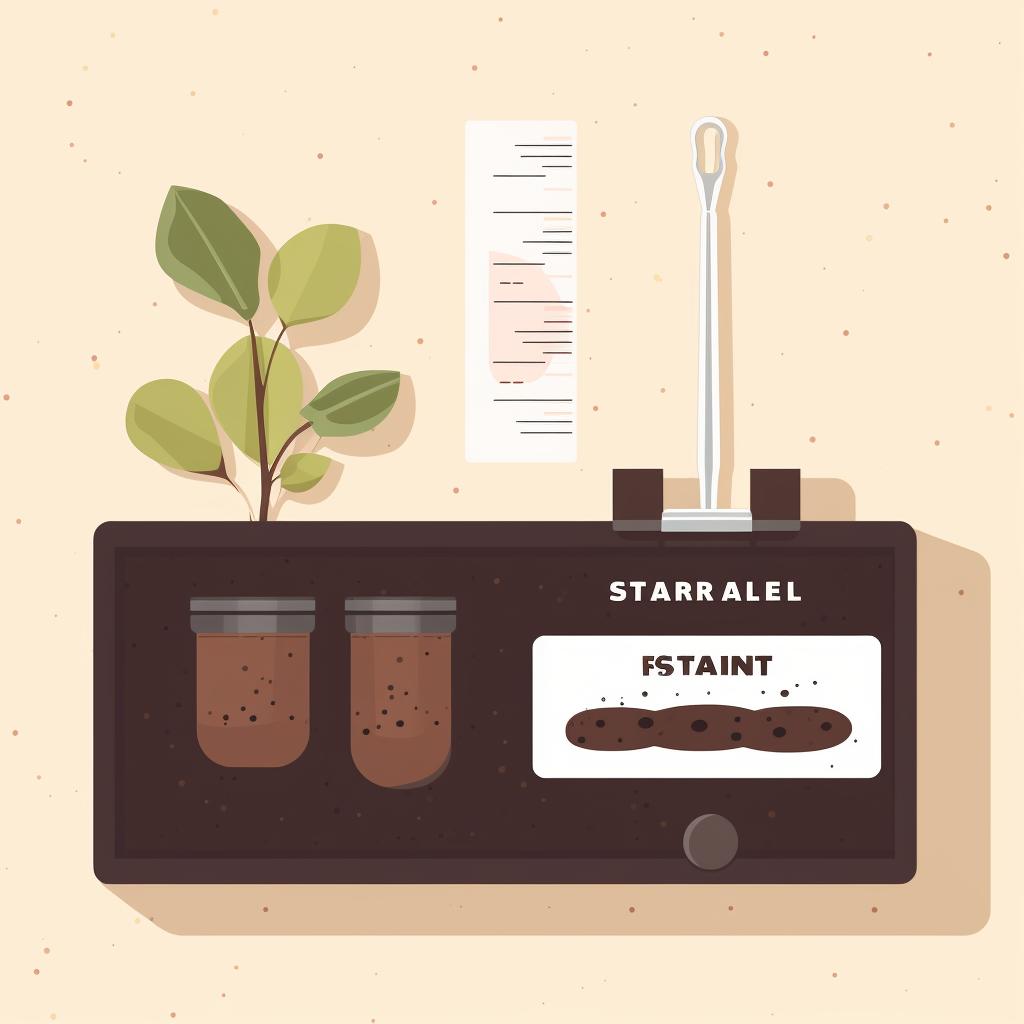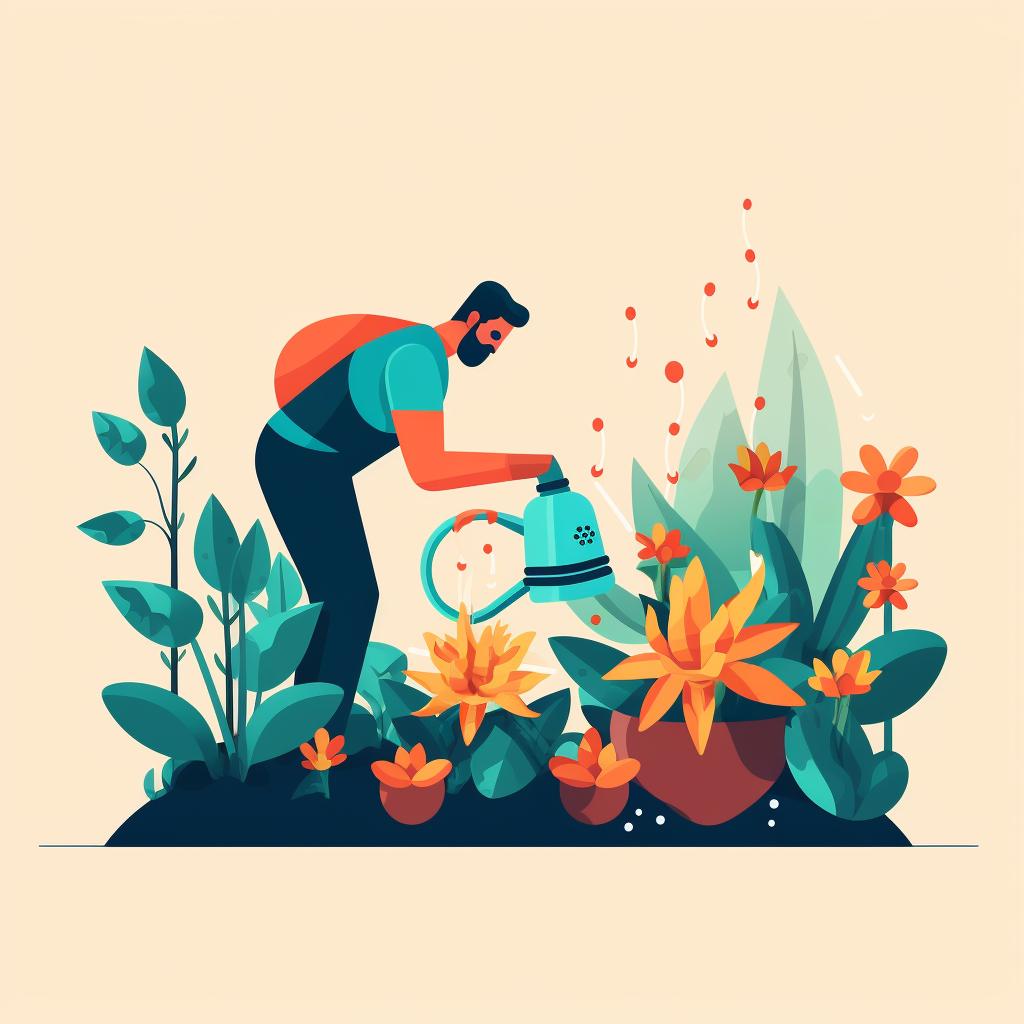Dr. Lily Green is a plant pathologist with over 20 years of experience in diagnosing and treating plant diseases. She has published numerous articles and books on the subject and is a sought-after speaker at gardening conferences and events.
Identifying and treating nutrient deficiencies in your plants is crucial to their health and vitality. Understanding what nutrient deficiencies look like and how to correct them can mean the difference between a thriving garden and a struggling one. Let's dive in.
One of the first steps in addressing nutrient deficiencies is to understand how to correct them. This comprehensive guide provides a step-by-step approach to help you identify and address nutrient deficiencies in your plants.
It's important to be able to identify common signs of nutrient deficiencies in plants. This knowledge will enable you to take prompt action and provide the necessary nutrients to your plants.
Plant nutrition is a vital aspect of gardening. To learn more about the importance of plant nutrition and how it affects the growth and health of your plants, check out this informative article.
🕵️♀️ Unmasking the Culprits: Spotting Plant Nutrient Deficiencies
Every nutrient plays a unique role in plant health, and each leaves a distinct mark when lacking. Here are some common nutrient deficiencies and how they manifest in plants:
Common Nutrient Deficiencies in Plants and their Symptoms
For a more detailed look at nutrient deficiencies, this handy guide on Amazon offers comprehensive information.
For a more detailed look at nutrient deficiencies, this handy guide on Amazon offers comprehensive information. In addition to the guide, you may also find it helpful to have a soil testing kit to check the nutrient levels in your soil.
One such kit is the Luster Leaf 1601 Rapitest Test Kit for Soil pH, Nitrogen, Phosphorous and Potash. This kit allows you to easily test the levels of these essential nutrients in your soil, helping you identify and treat any deficiencies.
💪 Flex Your Green Thumb: How to Fix Nutrient Deficiencies
Once you've identified a potential nutrient deficiency, the next step is to rectify it. The solution often lies in adjusting your fertilizer regimen or amending your soil. Here's a simple guide:
Choose the correct fertilizer and amend your soil accordingly to correct nutrient deficiencies in your plants. Follow this step-by-step guide to ensure optimal growth.
If you're unsure about the signs of nutrient deficiencies in your plants, take this quiz to test your knowledge.
Understanding plant nutrition is essential for maintaining healthy plants. Learn more about the basic nutrients needed for plants and how they obtain essential nutrient elements in this article.
Soil nutrients play a vital role in plant health. Find out why soil nutrients are important and how you can improve the soil in your garden with these tips.
For a comprehensive understanding of plant nutrition and the roles of essential nutrients in plant growth, refer to this guide.
Ensure your plants receive the necessary nutrients for optimal growth by maintaining a proper nutrient balance. Learn more about plant nutrition essentials in this guide.
Now that we've identified the potential nutrient deficiencies, let's dive into the process of rectifying them. Follow these steps to ensure your plants get the nutrients they need:
Learn more about A Step-by-Step Guide to Treating Nutrient Deficiencies in Plants or discover other Problem Plant guides.
Treating nutrient deficiencies is a crucial part of plant care. However, prevention is always better than cure. Let's look at how regular soil testing can help avoid nutrient deficiencies in the first place.
However, remember that prevention is better than cure. Regular soil testing can help avoid nutrient deficiencies in the first place.
🛡️ Be Proactive, Not Reactive: Preventing Nutrient Deficiencies in Plants
Preventing nutrient deficiencies starts with knowing your soil. Regular soil testing can provide valuable information about your soil's nutrient content. Here are a few tips:
Top Tips for Preventing Nutrient Deficiencies
- Annual Soil Testing: - A yearly check-up for your garden soil to identify any nutrient deficiencies.

- Adjust Fertilization: - Modify your fertilizer use based on soil test results to maintain nutrient balance.

- Crop Rotation: - A simple yet effective strategy to prevent nutrient depletion in your soil.

- Compost & Organic Matter: - Improve soil fertility and structure by adding compost and organic matter.

You can use this soil testing kit available on Amazon to check your soil's nutrient levels.
For a more detailed look at nutrient deficiencies, this handy guide on Amazon offers comprehensive information. You can use this soil testing kit available on Amazon to check your soil's nutrient levels.
For more information, check out this informative video on preventing and treating nutrient deficiencies in plants.
For more information, check out this informative video on preventing and treating nutrient deficiencies in plants.
For more information, check out this informative video on preventing and treating nutrient deficiencies in plants. This video by Epic Gardening provides a comprehensive understanding of all nutrients that plants need and how to identify and rectify deficiencies.
After watching this video, you should have a good understanding of how to identify and treat nutrient deficiencies in your plants. Now, let's wrap up with some final thoughts.
🌱 Cultivating Confidence: Mastering the Art of Plant Nutrition
Identifying and treating nutrient deficiencies doesn't have to be a daunting task. With a little knowledge and the right tools, you can ensure your plants are getting the nutrients they need to thrive. Remember, healthy soil equals healthy plants!
Nutrient Deficiencies in Plants Quiz
Test your knowledge on identifying and treating nutrient deficiencies in plants.
Learn more about 🌱 Nutrient Deficiencies in Plants Quiz 🌱 or discover other Problem Plant quizzes.
Got more questions? Feel free to drop them in the comments section below. Happy gardening!























































